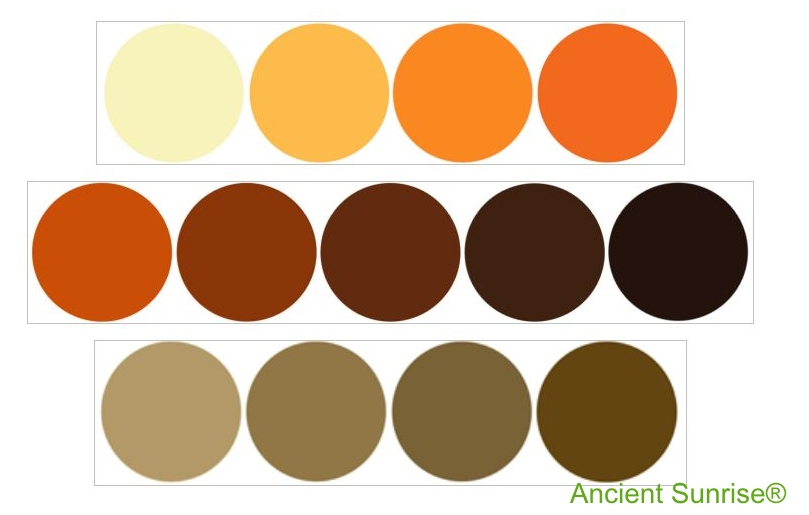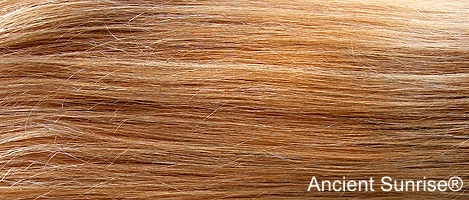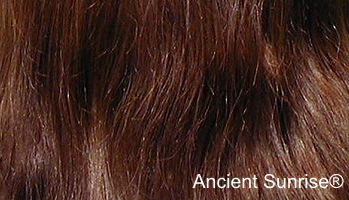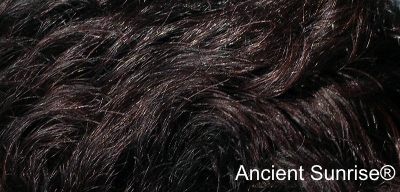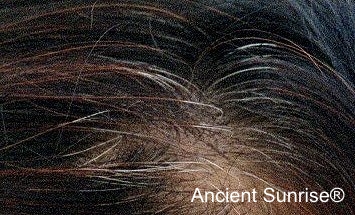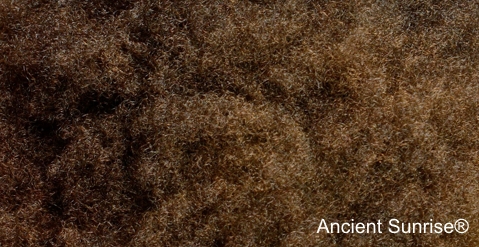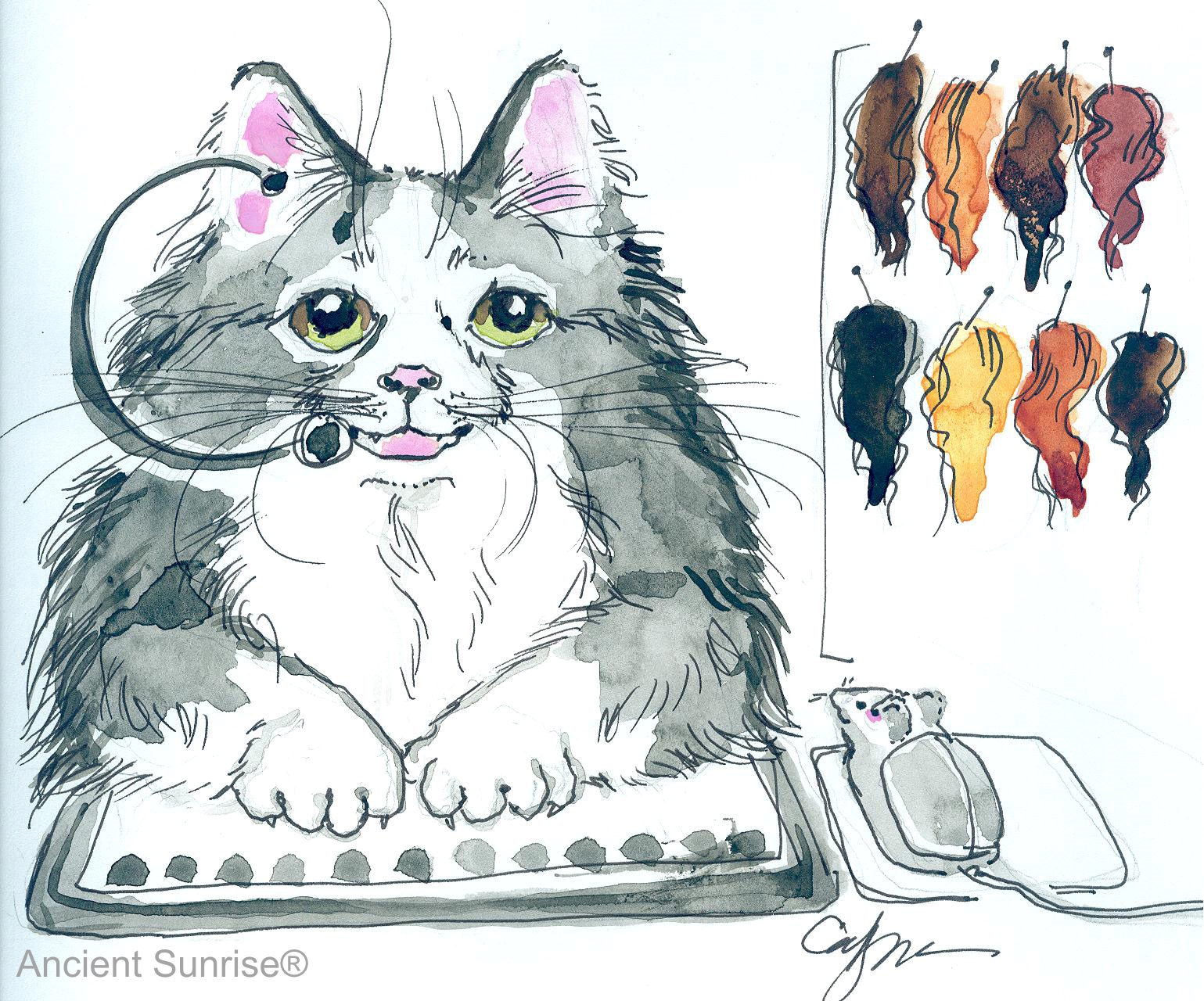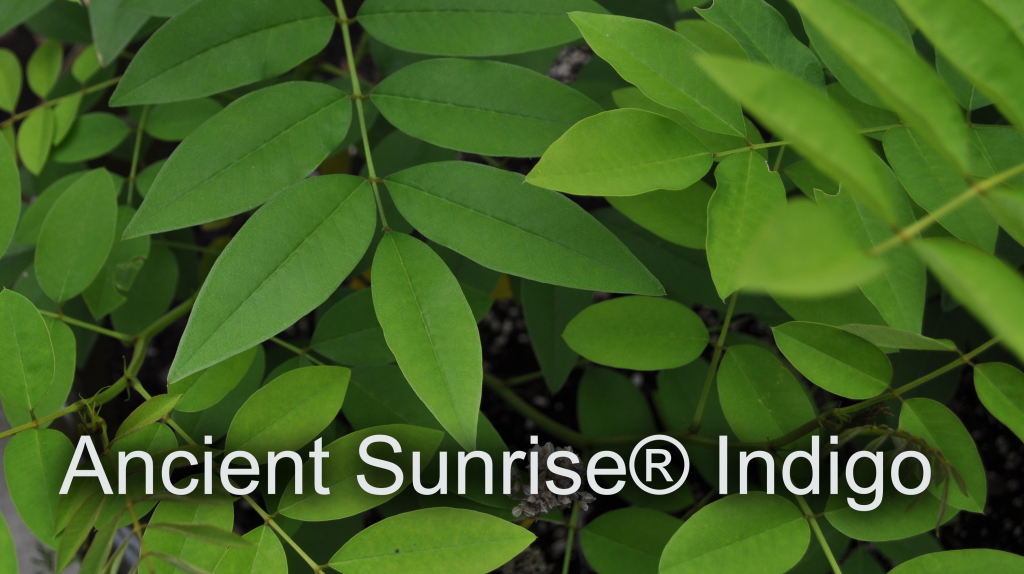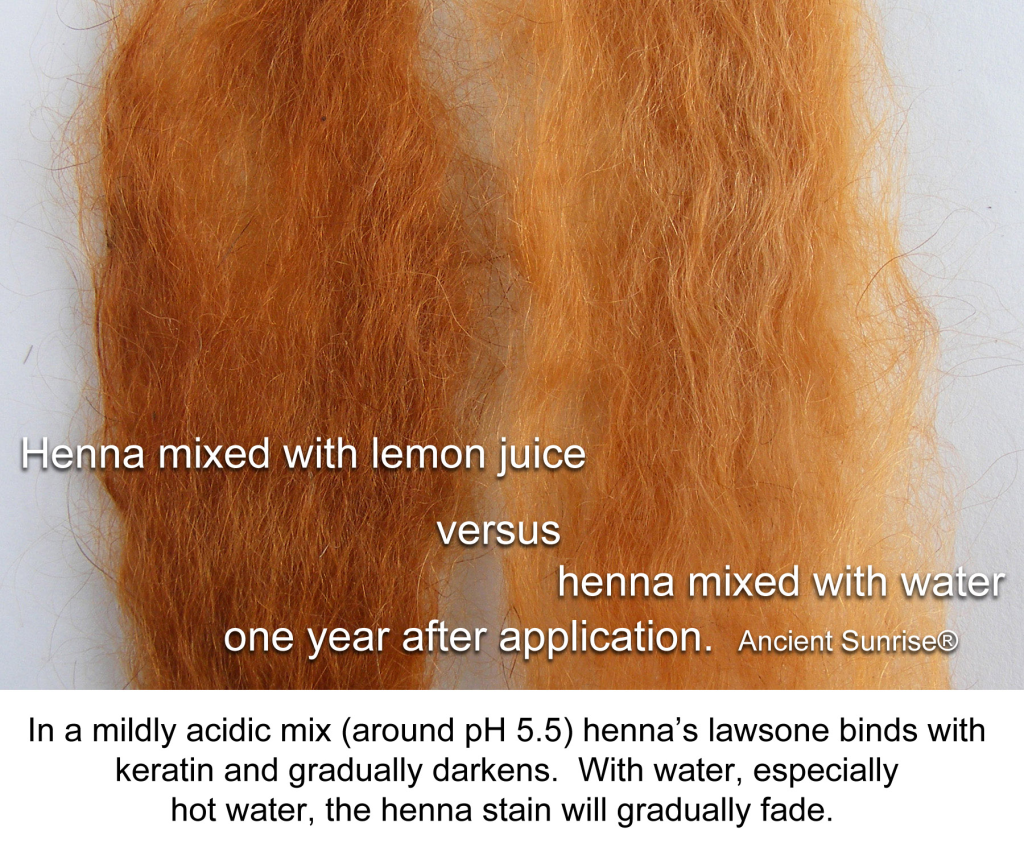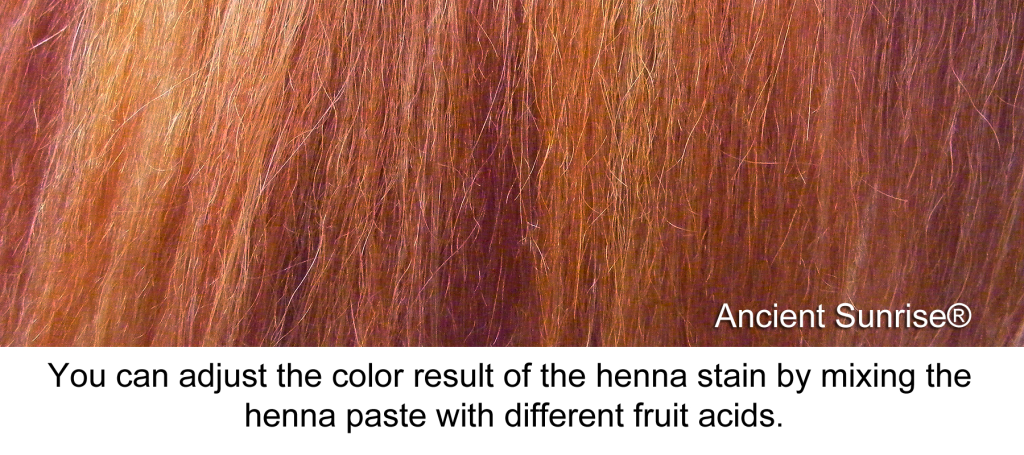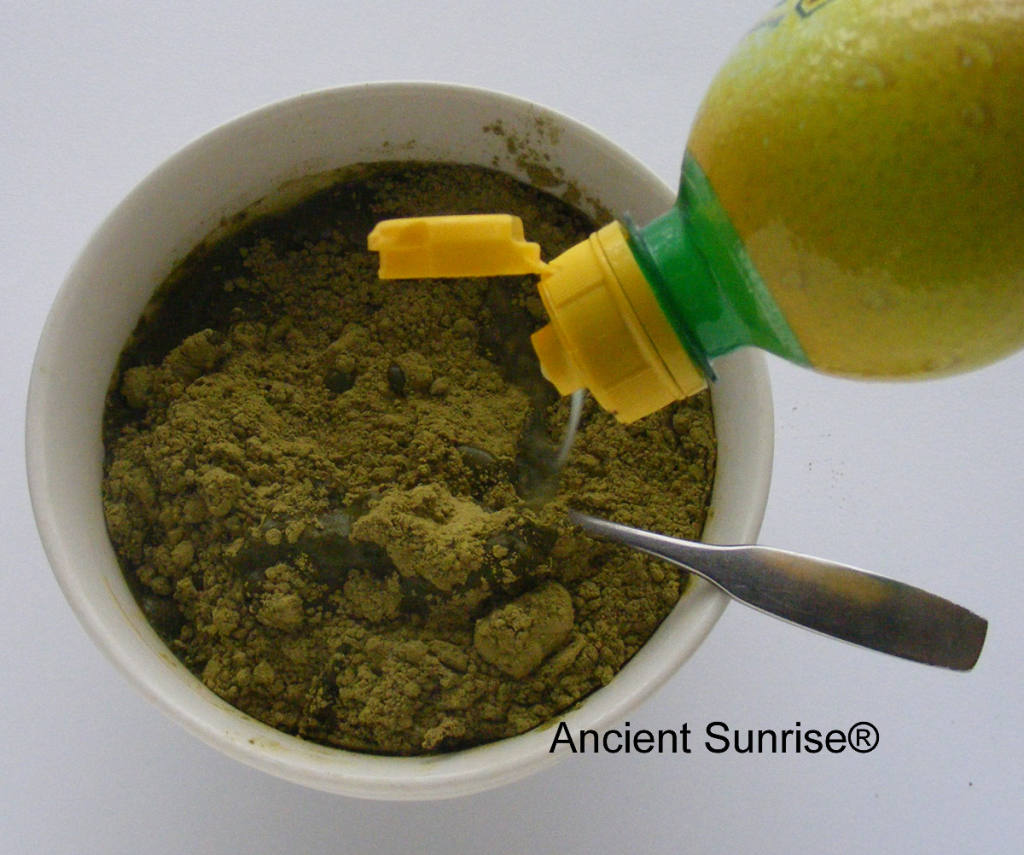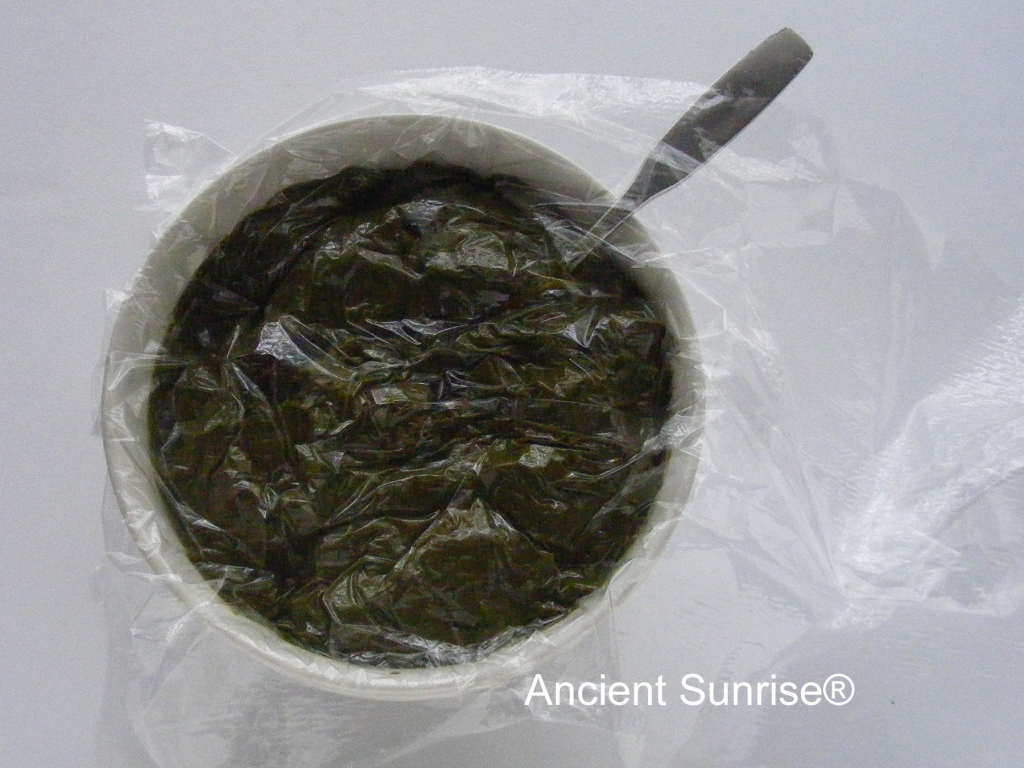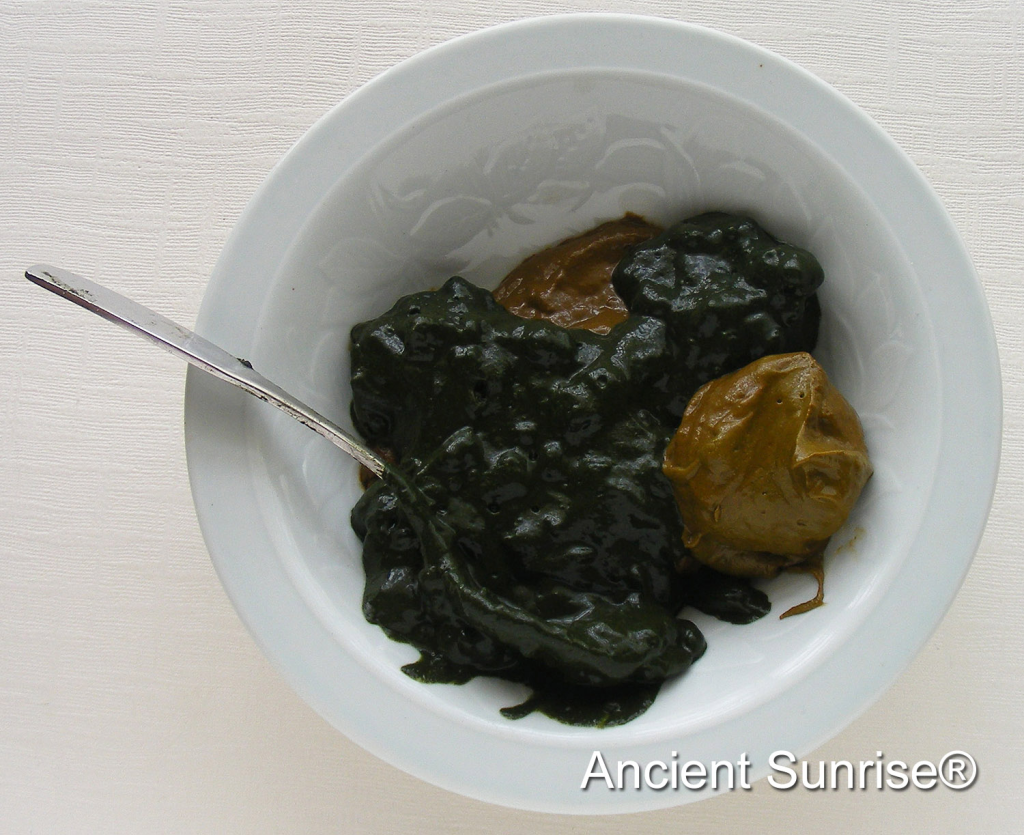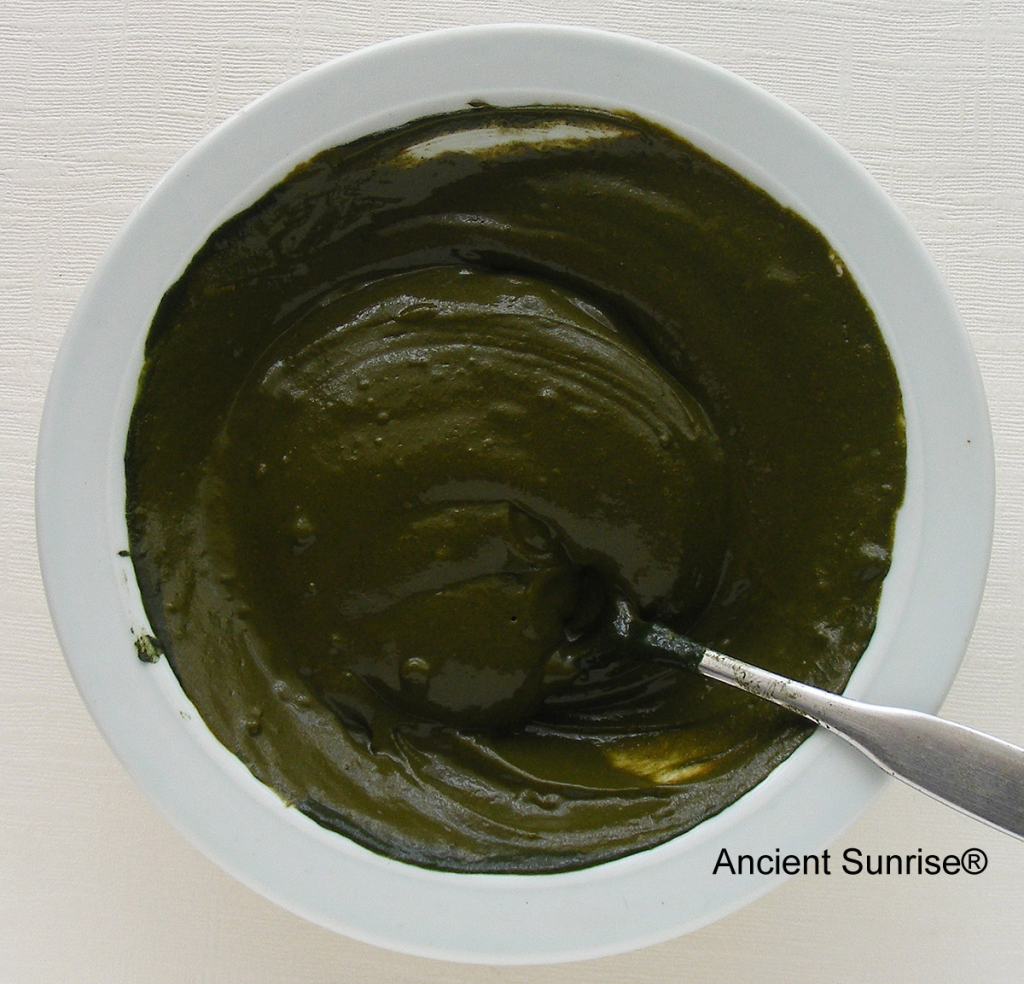
Pure, body art quality henna is an amazing thing. It practically works miracles on your hair, giving it beautiful, shiny color that isn’t damaging, and doesn’t fade over time. But there is even more to it than that! Here we count nine great benefits of henna and other plant dyes on your hair.
It’s Versatile
While henna alone dyes the hair rich, vibrant shades of red, copper, and auburn, there are an infinite number of color options possible when mixing henna with cassia and/or indigo. Some people who don’t know about cassia and indigo are hesitant about using henna because they don’t want their hair to be red. In reality, you can achieve nearly any natural shade of hair color from blonde to jet black.

It’s also easy to adjust the color. If one mix isn’t quite right, you can add more henna for more red tones, add more indigo for darker and browner tones, or add cassia for lighter, more golden tones. Long-time henna users know that dyeing your hair with henna is part art and part science, and once they find their perfect mix, they stick to it.
The only thing that henna, cassia, and indigo cannot do for color is to dye dark hair a lighter shade, but it is possible to lighten hair before using plant powders, as long as you are using Ancient Sunrise® brand plant dye powders. You can also lighten over hair hennaed with Ancient Sunrise® products. Keep reading to learn why testing makes a difference.
What customers are saying:
“So happy to have found plant dyes that not only offer a wide range of beautiful hair colors, but are safe to use and condition and strengthen my hair at the same time.”
–Himmat
It Conditions and Protects the Hair
Oxidative dyes (commercial dyes) contain a cocktail of synthetic dyes, colorants, PPD, ammonia, metallic salts, and other chemicals which can be damaging and drying to the hair and scalp. Henna, on the other hand, is pretty straight forward. The acting dye is lawsone, which binds to and stains the keratin on the outer layers of your hair. These molecules act as reinforcement, and protect against future damage. Not only that, but henna acts as a natural sun-block, protecting hair against UV damage.
Unlike commercial hair dyes that leave hair more brittle and fragile, henna leaves your hair smooth, shiny, stronger, and sometimes even thicker. Over time, your hair can grow to longer lengths without breaking.
What customers are saying:
“I was tired of losing hair to the harsh chemicals to be a blonde. Stylists would say hair loss in your forties is normal. Crazy! Just like they would justify the burning sensation during processing the color. I love my henna hair weekends. My hair is healthy thanks to henna. I Love the rosemary shampoo bar as well. Henna/indigo has changed my life and saves my budget.”
–Teresa
It’s Permanent
Anyone who has dyed their hair at the salon or with boxed dye can relate to the experience of seeing a beautiful color for the first few days or weeks, and then watching the color fading and becoming dull, with gray hairs peeking through again. Even dyes that are labeled “permanent” seem to fade. Before you know it, you’re dyeing your hair again and again to maintain your color, all the while inflicting more and more damage to your hair.
Henna works differently. It binds permanently to the hair and doesn’t fade. In fact, it can slowly get darker over time if you’re not careful. This darkening is easily preventable. Most henna users only do their roots after dyeing all of their hair once; some do a full-head treatment once every few months for conditioning benefits, but it’s not absolutely necessary.
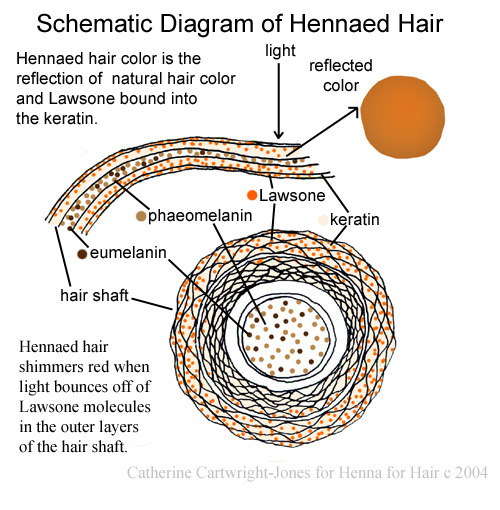
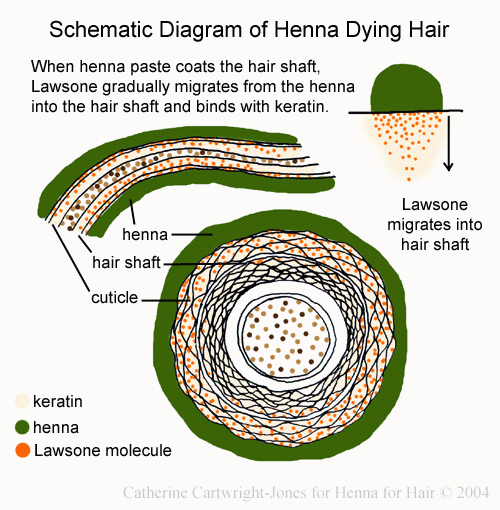
What customers are saying:
“Henna is a completely different way of dyeing your hair, when I started using it, I found a more natural red color (my favorite) that is not flat, but shimmery and doesn’t fade!”
–Sky
It’s Completely Safe
Henna is a great choice for women who are pregnant, people with sensitive skin, people who are recovering from illness, or just anyone who wants to avoid using chemicals that may be harmful to them. It is a wonderful alternative for those who have PPD sensitizations, who cannot use regular hair dye without experiencing painful and life-threatening reactions. So many of our customers are those who thought they would never be able to dye their hair again before they found us.
We at Ancient Sunrise run our plant powders under a microscope and conduct other tests to check for PPD, metallic salts, heavy metals, pesticides, and other chemical adulterants. This is why we feel confident in saying that they are safe to use. To read more about henna and microscopy, click this link: https://www.tapdancinglizard.com/henna-science-and-microscopy/. Much of the henna on the market claiming to be pure doesn’t have evidence to back it up. Most suppliers are unaware of what processes their products undergo before it reaches them. Other companies pre-mix their plant powders and add synthetic dyes, metallic salts, and other ingredients hoping to simplify the process and improve results; often the opposite occurs.
Because they contain nothing but plant powder, it is safe to use Ancient Sunrise® henna on hair that has been previously dyed, and it is safe to use commercial hair dye over hennaed hair. Same with lighteners, perms, and relaxers. It’s important to note that your color may vary or you may need several applications of Ancient Sunrise® products if your hair is severely damaged from chemical processes.
Allergic reactions to henna, indigo, and cassia are very rare. If you have mold allergies, you may experience a reaction with indigo, so test first (reactions are similar to hay-fever). Mold spores can develop when indigo goes through its natural fermentation process. The fermentation process creates a very moist environment which makes mold spores virtually unavoidable. A small percentage of users experience mild hay-fever related symptoms. Those with a G6PD deficiency, a hereditary condition, should not use henna.
What customers are saying:
“After years of abuse, chemicals, heat and other various forms of hair torture, I finally found henna. Ancient Sunrise to be specific. My final experience with chemical hair color made me sick for a full 3 days, I even had to call off work to recover. Since then I’ve used only Ancient Sunrise with some apple juice, my hair has grown amazingly fast (I had to cut most of it off as it was so damaged it was like wet straw). Now after 2 years of AS henna, it’s healthy, shiny, and longer than it has been since I was a child.”
–Angie
“With all the safety testing they do I am thrilled to get it for this price. Many other hennas out there have tested with molds and heavy metals. THIS company cares about having a clean safe henna. That’s priceless. I have mercury poisoning and have to be VERY careful what I use. My hairdresser turned me on to this product after researching many.”
–Beth
It has Anti-fungal Properties
Did you know that henna can be used against fungal infections such as ringworm and athlete’s foot? Henna has antifungal properties and has been used for centuries as a remedy. It has also been safely used on animals. The owner, Catherine Cartwright-Jones PhD., soothes her pug’s summer itchies with henna. If using henna on an animal, just make sure they will not be licking the paste–it’s not poisonous, but may give them a stomach ache. Also be aware that if you have a particularly energetic animal, you may have henna smeared here and there throughout your home.
Because fungus is one cause for dandruff, you may find a decrease in dandruff after using henna, as well. Because we are not medical professionals, we cannot diagnose, nor prescribe. However, several scientific studies have shown henna’s efficacy against certain skin fungi, and we have many customers who have chosen to try henna on fungal infections and with success.
To find relief from athlete’s foot or toenail fungus, treat yourself to a henna pedicure.
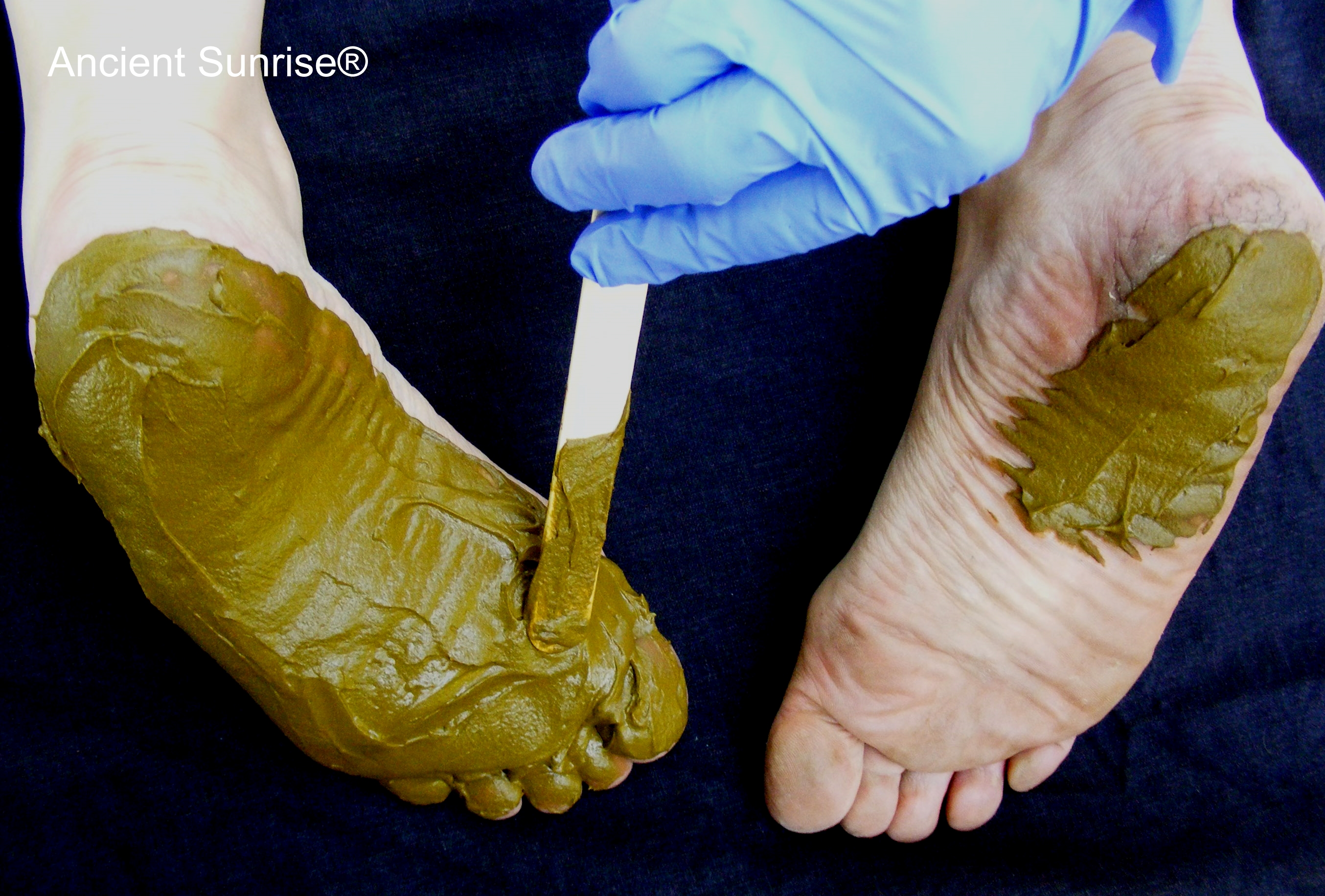
Henna is applied to the feet to kill fungus and to condition dry, cracked skin.
What customers are saying:
“[My husband’s] tinea inguinum and backside folliculitis have now scabbed over. As a sports medicine professional I am amazed that this was the only successful treatment…The henna caused both to completely dry up and scab over within 1 day. He has been dealing with this for 4 years of embarrassment and antibiotics and anti fungal creams.”
–Autumn
It Kills Lice
Lice are becoming resistant to many of the common over-the-counter and prescription drugs used against them. Having lice can be an incredibly itchy, frustrating experience. Luckily, no such resistance exists against henna at this time. It is also a safer, natural alternative to the conventional lice treatment. It may even be quite soothing and enjoyable.
An application of henna paste mixed with a small amount of fenugreek or artemesia powder will kill lice and its eggs. Artemesia should not be used on children or pregnant women, but fenugreek is safe.
Henna will give the hair a reddish tone. If you don’t mind sending your children back to school as red-heads, this won’t be a problem. It’s better than shaving them bald. If your child has secretly dreamt of having red hair (as this writer did in her youth), it might even be a bonus!
If red hair isn’t your thing, you can adjust the color with a henna/indigo mix, or lighten your hair after the lice is eradicated.
It’s Better for the Environment
From growth to use, henna is healthy and sustainable. Henna is a hardy, drought-resistant plant that does not need very much to thrive. Henna farmers don’t need to worry about using large amounts of water to keep their plants alive, and pesticides are unnecessary. The small trees grow slowly and live up to fifty years. Only the leaves are harvested, so the rest of the plant stays firmly in the ground where it protects the soil from wind and erosion.
Henna trees are used as hedgerows in agricultural areas. It prevents desert encroachment, and its thorns keep away pesky animals that may attempt to enter a farmer’s field to munch on their crops. Thus, not only is it easy and environmentally sustainable to maintain henna crops, but the crops themselves offer additional benefits to the areas in which they grow.

In comparison to creating commercial dyes, henna’s processing is quite simple. The leaves are harvested, dried, ground, and sifted into a fine powder, before being sealed into air-tight packages. The powder’s long shelf life means that a sealed, dry packet of henna can stay good for several years. Preservatives are unnecessary. The packaging is minimal and functional.
Finally, consider what is going down the drain when you rinse henna out of your hair. Plant powder. Maybe some kind of fruit juice. Water. Using henna means feeling safe that you are not putting harmful chemicals back into the water supply.
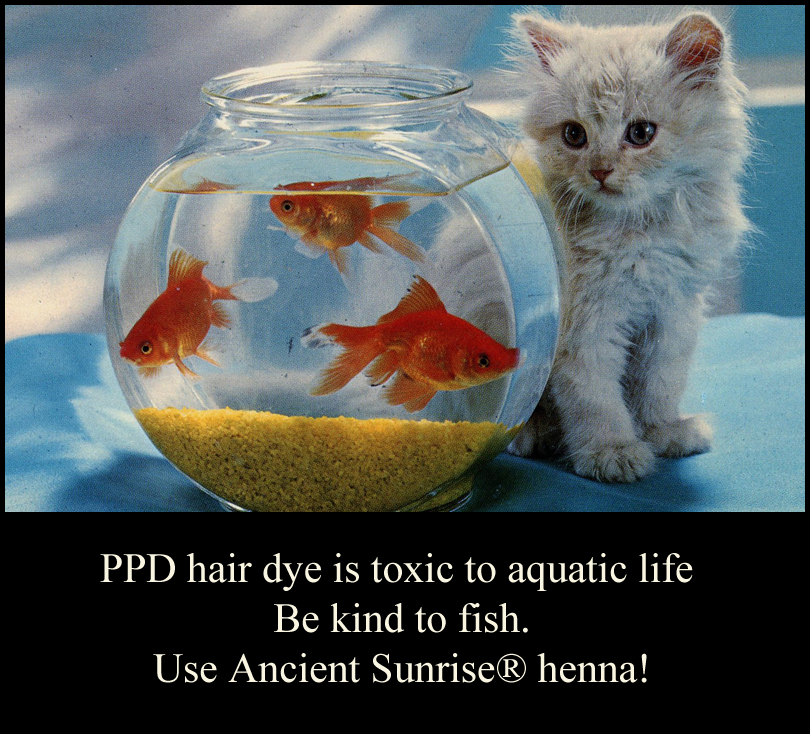
It’s Economical
Buying hair dye at the local store can run anywhere between $5-15 dollars per box, or more. It’s not that much, but considering the fact that most people who dye their hair re-dye once every three to six weeks, those costs can add up. Conventional dyes also fade over time, leading to frequent touch-ups to keep the color fresh. Having your color done at the salon can run you over a hundred dollars or more.
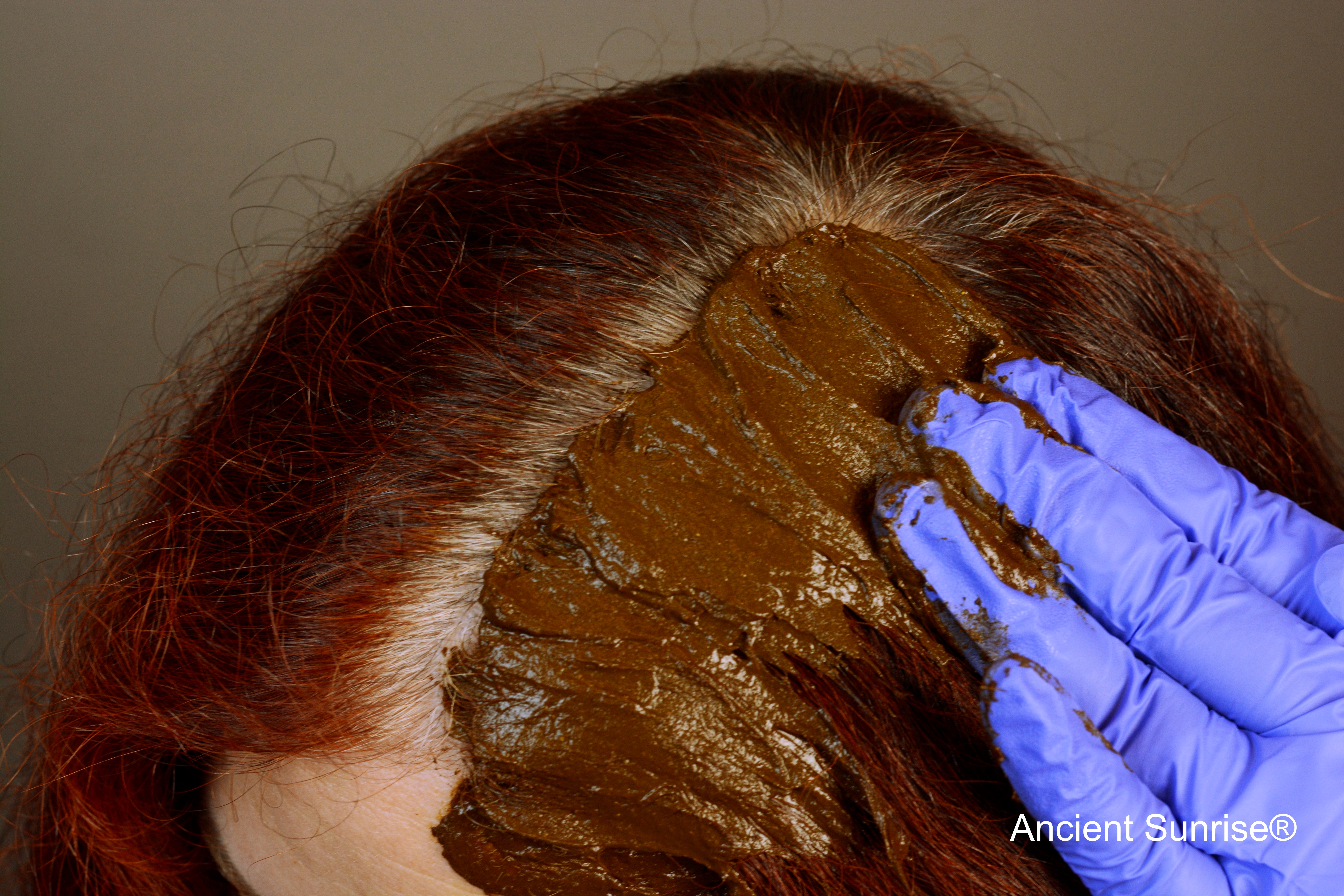
To keep costs down and your color bright, dye only your roots as they grow out.
The color you get from dyeing your hair with henna is permanent. It doesn’t fade over time, and it may actually deepen if you re-apply too often. After dyeing all of their hair once, most people only touch up their roots. The average root touch-up takes 30g-100g of powder, which costs about $3-10 per touch-up, and less when you buy in bulk.
The plant powders last for years when kept sealed and dry. Many customers place a bulk order once or twice a year so their ingredients are all on hand. This saves money with our bulk discount, and cuts down on shipping costs. For some, enough henna for a full year’s worth of color is less than $100, or even less than $50. Awesome, right?
What customers are saying:
“I buy the henna in 1/2 kilo lots. My hair is short, so that 1/2 kilo will do 10 applications for me. At around $40 per 500g, that costs me $4 per application.”
–Susan
It’s Empowering
We believe in putting the power of knowledge back into the hands of the consumer. This is why we make so many resources available on www.mehandi.com and www.tapdancinglizard.com. The owner and founder, Catherine Cartwright-Jones, pursued a PhD in henna-related studies so that she could spread accurate, science-based knowledge about henna and affect changes in the way women choose their hair products.
Many people are affected by PPD sensitization and can no longer dye their hair with commercial dyes. When they discover henna, they often encounter piles of misinformation on the internet, and from friends, family, or hairdressers. In the customer service office, we help new henna-users every day, who go on to fall in love with henna and never turn back to regular hair dyes.
The process of mixing and applying can be daunting to someone who has never used henna before, but it’s not as hard as it looks! Using henna was once common knowledge in regions of South Asia and the Middle East, where women came together to spend a day washing, dyeing their hair, and enjoying each other’s company. Henna brings a communal aspect into beauty rituals.
We have thousands of customers from all walks of life who mix and apply their henna at home, and enjoy the process. They get to take control of their hair, its color and its health. They are fully informed about what they are using and how to use it. They can rest confident that they are not harming their bodies. They share their information with family, friends, and complete strangers. We’ve lost count of how many times customers have told us that they get compliments from strangers, or that they themselves found out about us from someone they met.
What customers are saying:
“Henna user for over 20 years; finally understood the process and achieved great color with an easier process with your info. Have been using your henna/process for 6 years. (extra bonus: Your sifted henna doesn’t clog the drains as much!)”
–Jennifer
“Using Ancient Sunrise Henna = self love”
–Deborah
The empowerment goes far beyond just the customer. By supporting Ancient Sunrise® and www.Mehandi.com,you support a small business that employs a diverse group of people with various cultural backgrounds, identities, and orientations. You support further research for henna and natural cosmetics, and advocacy against the use of PPD in commercial products.
We are also one of the largest importers of henna and other plant powders in the United States, contributing to the continuing agricultural economy of the areas which grow and process our products. This helps to ensure that henna remains a profitable crop for those who cultivate it. We believe in fair business practices, a relaxed and cheerful work environment, and a constant desire to inquire, create, and grow so we can keep offering the best products and services to a widening group of customers. It really is pretty cool.
If you still need some extra convincing before you switch to Ancient Sunrise® Henna for Hair, don’t hesitate to contact us via phone, email, or chat
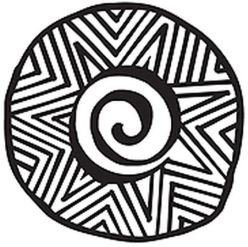
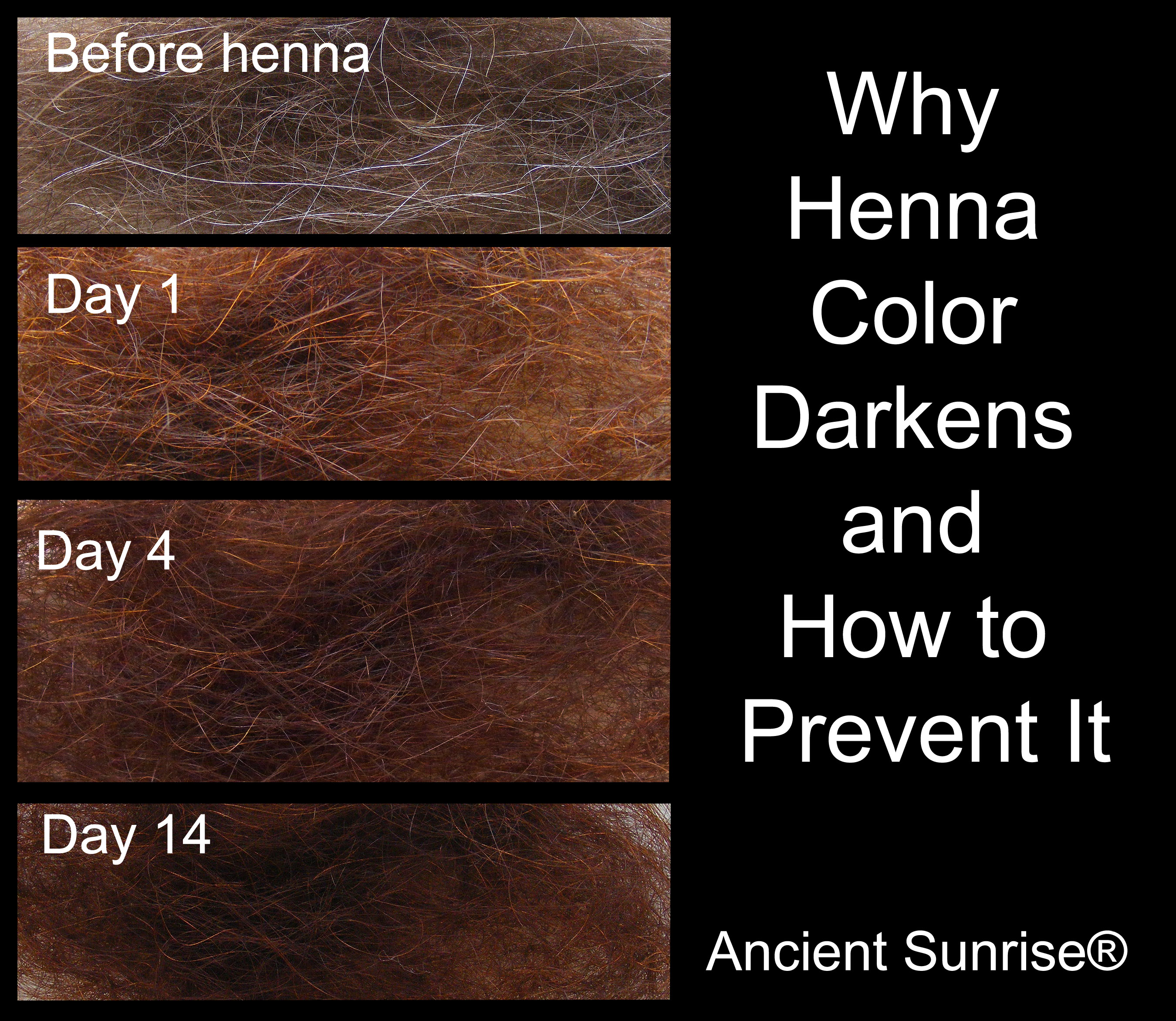
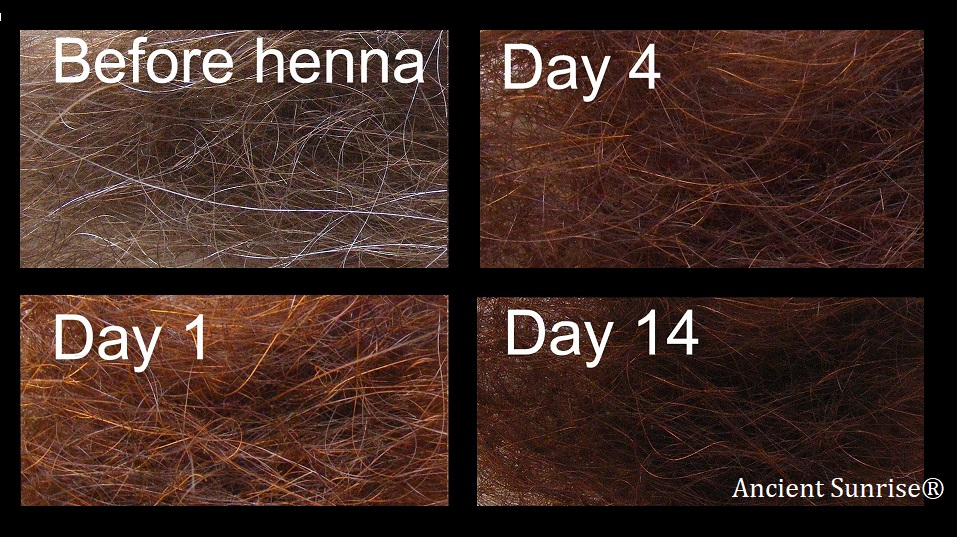
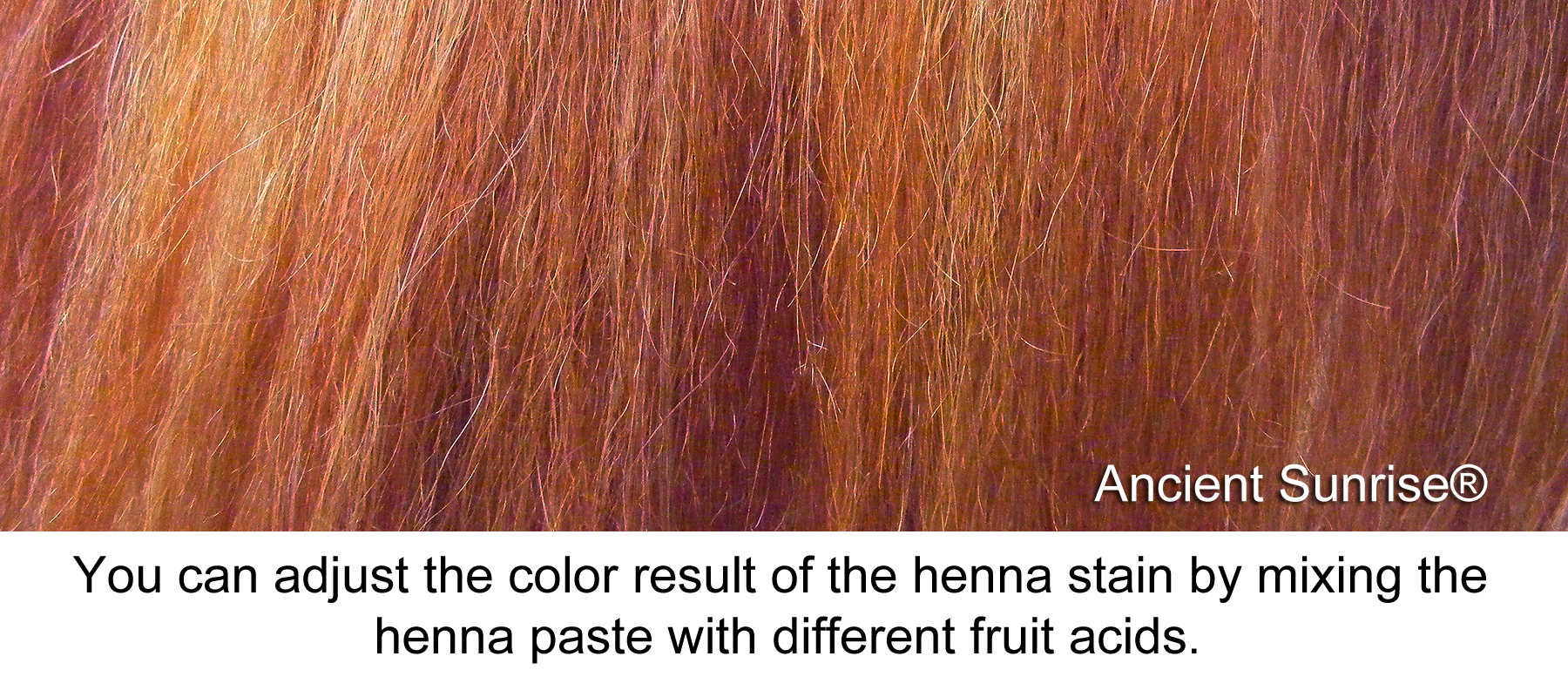
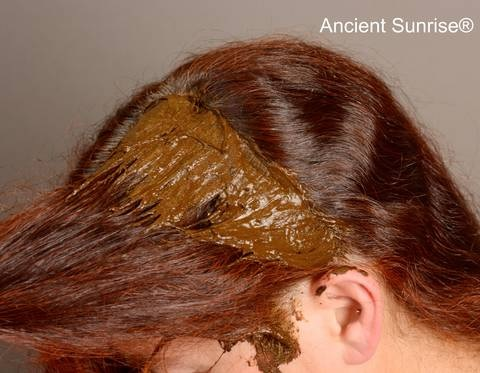


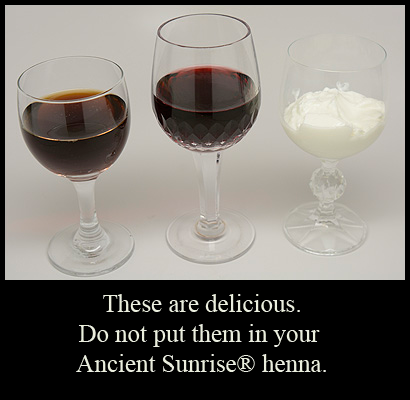


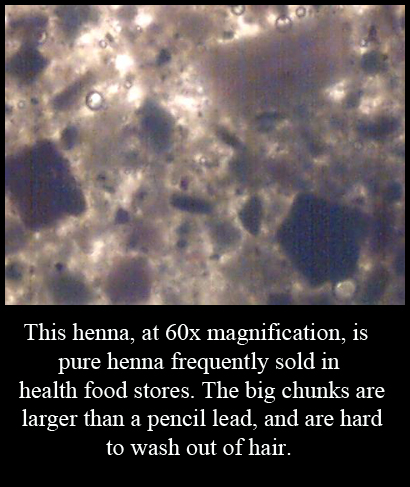
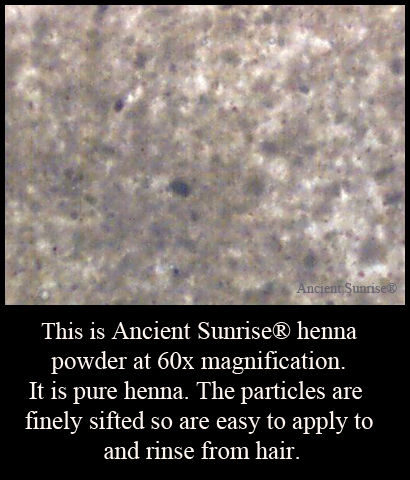
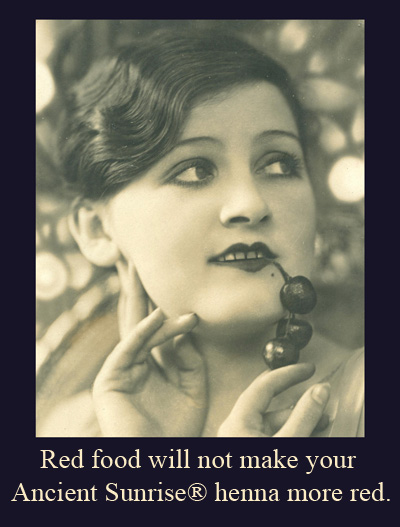
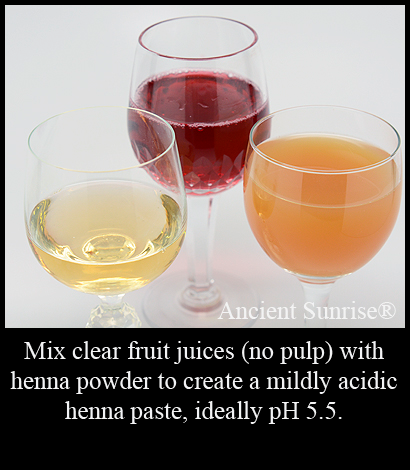
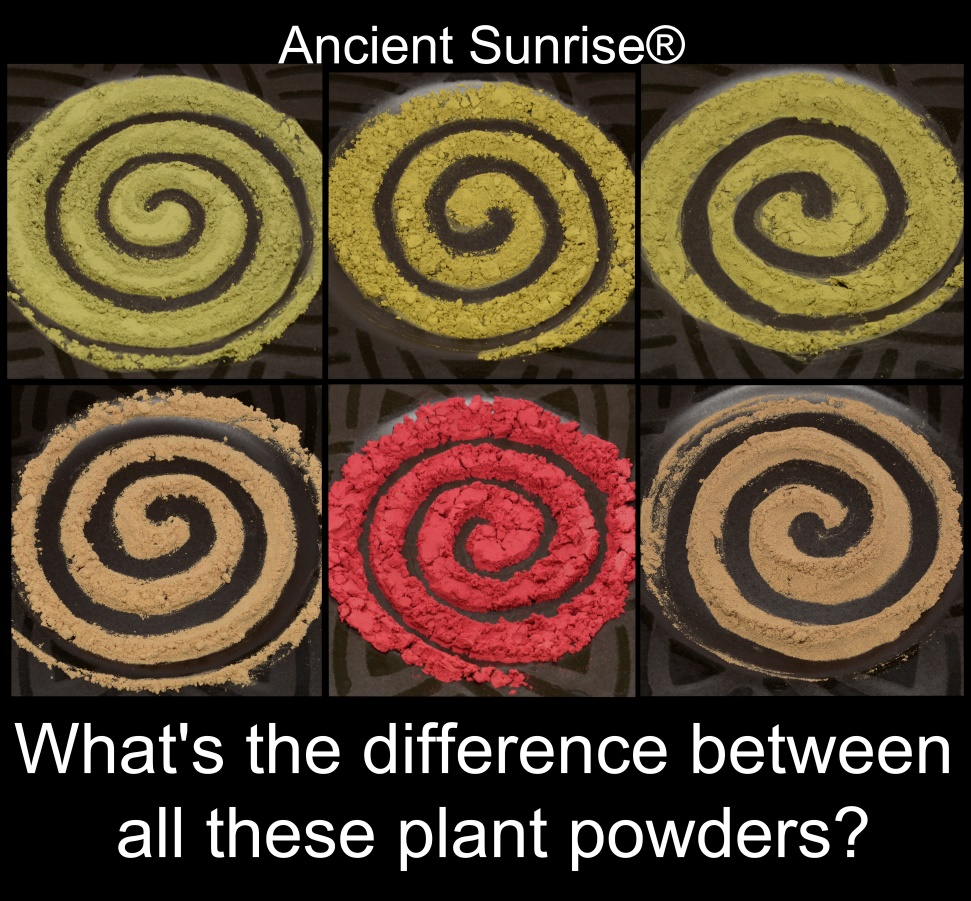 If you’ve read
If you’ve read 